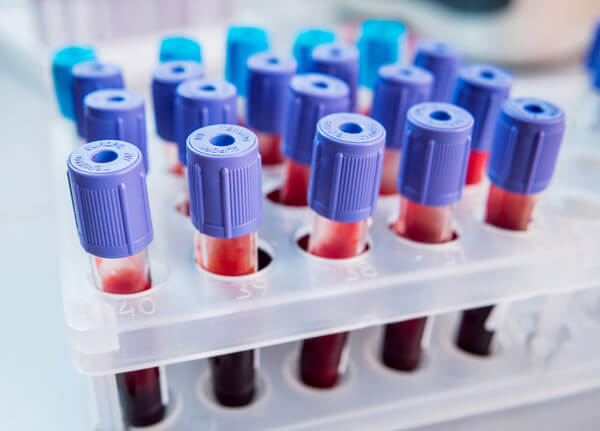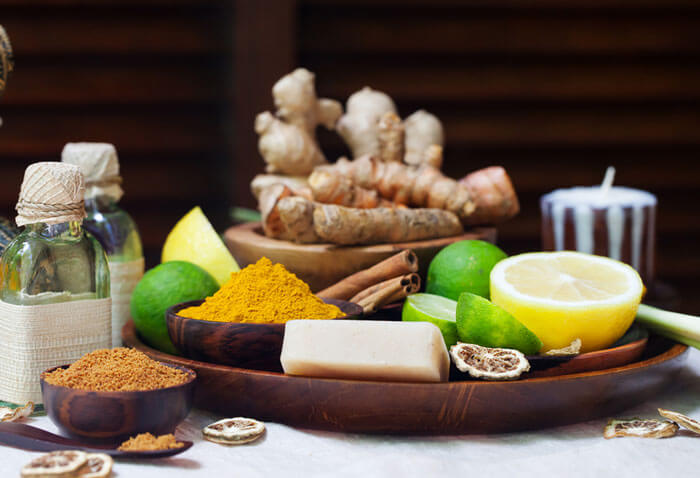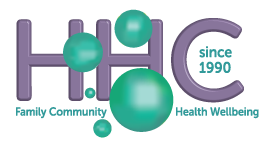The following health issues are reasonably common for people in their 50’s and 60’s:
- High Cholesterol
- High Blood Pressure
- Pre-diabetes
- Fatty Liver
There are a myriad of factors that can cause these, such as smoking, excess alcohol, saturated fats and a sedentary lifestyle. Additional factors can also be stress, inadequate sleep, lack of hydration, hyper processed food, and a history of medication.
For those who have high cholesterol levels, but their cardiovascular risk is low, then lifestyle factors can be implemented, but it is essential to have cholesterol levels checked by your doctor on a regular basis, as this will help to monitor if the lifestyle choices are working, and the cholesterol levels reducing.
With pre-diabetes, lifestyle changes can be made to make avoiding medication easier.

What is Cholesterol?
Cholesterol is a fatty, wax like substance that is made in the liver and is essential for the production of hormones, vitamin D and the development of bile acid.
Cholesterol comes under the group ‘Sterols’ which refers to its chemical structure. Sterols can be found in plants in the form of phytosterols and in some studies it has been found that flaxseed, which is a plant sterol, can help reduce inflammation and improve blood sugar control.
There are two different types of cholesterol:
Low Density Lipoproteins (LDL) it’s the ‘bad cholesterol’
High density lipoprotein (HDL) it’s the ‘good cholesterol’
What are triglycerides?
Triglycerides are a type of fat (lipid) found in your blood.
When you eat, your body converts any calories it doesn’t need to use right away into triglycerides. The triglycerides are stored in your fat cells. Later, hormones release triglycerides for energy between meals.
If you regularly eat more calories than you burn, particularly from high-carbohydrate foods, you may have high triglycerides.
What’s the difference between triglycerides and cholesterol?
Triglycerides and cholesterol are different types of fats/lipids that circulate in your blood:
- Triglycerides store unused calories and provide your body with energy.
- Cholesterol is used to build cells and certain hormones.
Raised Blood Pressure
Normal blood pressure is around 120/80. Hypertension is 140/90 and severe hypertension 180/110.
High blood pressure is sometimes asymptomatic, but may be caused by being overweight, eating too much salt and processed food, excess alcohol and smoking.
Hydration is another important factor, if the body doesn’t get enough water, it becomes dehydrated which makes the blood thicker and increases the secretion of vasopressin. Vasopressin is a hormone the body secretes when there is a high amount of sodium in the blood, a high level of vasopressin causes blood vessels to constrict, which leads to increased blood pressure.
Stress is also a driving factor for high blood pressure, being in constant flight or flight mode causes the heart to beat faster and the blood vessels to constrict.
Non-alcoholic Fatty Liver Disease
High levels of fat in the liver are associated with an increased risk of diabetes and heart disease. Smoking, being overweight, being diabetic or having insulin resistance, hypothyroid, raised blood pressure, high cholesterol and being over the age of 50 are factors that increase the risk of fatty liver disease.
Fatty deposits are increased through insulin resistance, the pancreas sends insulin into the body to store glucose throughout the body and to protect it. The first place where the body stores it is in the liver which turns it into glycogen, the second place is our muscles. When excess glucose is produced it turns into glycogen and fat, extra fructose just turns into fat.
Adopting a Healthy Lifestyle
Maintaining a healthy weight is very important, as being overweight can increase cholesterol levels. Many nutritionists will recommend incorporating more plant-based foods into your diet and increasing physical activity, as a sedentary lifestyle along with a poor diet will elevate your cardiovascular risk.
Exercise Regularly. Regular exercise, such as running or a fast walk, or cycling has been shown to increase HDL (good) cholesterol levels and will help to decrease the LDL and triglyceride levels. Resistance exercise such as weight-lifting and strength training has a positive effect on decreasing LDL levels. Start with a 30-minute exercise regime at least 5 days a week, many gyms will have trainers who will advise what are the best individual exercises.
Limit Saturated and Trans Fats. Saturated and trans fats can raise LDL cholesterol levels, therefore its best to limit red meat, full-fat dairy products and processed foods that are high in saturated fats, also limit coconut oil, cheeses, and pastries. Good alternatives could be small amounts of nuts and seeds, avocado and extra virgin olive oil.
Increase Omega-3 Fatty Acids. Omega 3 fatty acids can help to lower cholesterol levels. They can be found in fatty fish, such as salmon and mackerel, flaxseeds, and chia seeds. Alternatively, a good fish oil supplement can be taken.
Getting Enough Sleep. A lack of good sleep can increase cortisol levels, which can lead to higher cholesterol levels. Achieving 7-9 hours of sleep each night will help to improve overall heath and assist in lowering cholesterol levels.
Increasing Hydration. Cutting back on sweet fizzy drinks, juice-based drinks and drinking more water, which helps with weight loss, reduces elevated blood pressure and supports mental clarity

.
Nutrients which can assist with Cholesterol Management
- Psyllium Husks. Fibre is known for its role in supporting gut health, and research shows that it can be beneficial in reducing cholesterol levels, particularly soluble fibre. Soluble fibre becomes a gel in the intestines and draws water into it, slowing down digestion. It can trap fats to stop them being absorbed, therefore incorporating around 25-30 grams of fibre a day is optimal for health. Other fibre rich foods are oats, beans, legumes, and vegetables. 6
- Cinnamon is a spice that has been used in traditional medicine for its anti-inflammatory and antioxidant properties. It contains cinnamaldehyde which has been proved to lower LDL levels and increase HDL levels. 7
- Flaxseed has many health benefits and contains alpha-linolenic acid, which also lowers LDL levels and increases HDL levels. 8
- Fenugreek has anti-inflammatory and antioxidant properties and contains saponins which lower LDL levels. 9
- Garlic contains allicin which lowers LDL levels. 10
- Turmeric has anti-inflammatory properties and contains curcumin, which has been shown to lower LDL levels and prevent the build-up of plaque in the arteries. It also improves brain function and reduces the risk of heart disease. 11
- Ginger contains gingerols and shogaols which reduces LDL levels and reduces inflammation in the body. 12
- Hawthorn contains antioxidants and flavonoids that can help lower LDL levels and improve blood flow. 13
- Artichokes has liver-protective properties and contains cynarine and luteolin, which have been shown to lower LDL levels and increase HDL levels. 14
- Soy protein has been shown to reduce LDL levels. 15
- Green tea may reduce LDL levels. 16
Managing Cholesterol with Supplements
The top supplements for cholesterol recommended are:
- Omega 3
- CoQ10
- Magnesium
- Vitamin D
- Chromium
- Probiotics 17
Top Homeopathy Remedies that can help with cholesterol
Homeopathy has several natural remedies that can assist in lowering high cholesterol levels, which can be taken alongside diet and lifestyle changes. Consultation with a practitioner is essential to get the best outcome from using homeopathic remedies.
Remedies that may help detox the liver and balance blood sugar:
- Argentum Nitricum
- Lycopodium
- Phosphorus
Remedies that may help to lower hypertension:
- Lachesis
- Natrum Muriatium
- Nux Vomica
- Veratrum Album
For those that are trying a holistic approach to lowering cholesterol, there are so many natural remedies that can help, it is just a matter of following a carefully made plan with a practitioner and of course persistence and willpower!
Polycrest Remedies that may help to lower Cholesterol.
- Calcarea Carbonica
- Lycopodium
- Sulphur
References
- Weight training and cholesterol. Jennifer Robinson MD and Jon McKenna, July 09 2023 WebMD.
- Gould A.l. Rossouw JE, Santanello NC, Heyse FJ. Furberg CD, Cholesterol reduction yields clinical benefit: Impact of stain trials. Circulation. 1998;97:946-952 (PubMed).
- Effect of Omega 3 fatty acid on plasma lipids, cholesterol and lipoprotein fatty acid content in NIDDM patients. Y K Goh et al Diabetologia Jan 1997. PubMed.
- How sleep affects your cholesterol levels. Susan Bernstein and Jennifer Robinson, MD, July 18, 2023. WedMD.
- Doubling of water intake increases daytime blood pressure and reduces vertigo in healthy subjects. Anders Jormeus et al. Clin Exp Hypertens 2010. Pub Med.
- Long-term cholesterol lowering effects of psyllium as an adjunct to diet therapy in the treatment of hypercholesterolemia. J W Anderson et al. Am J Clin Nutr. 2000 Jun. PubMed.
- The effects of cinnamon supplementation on blood lipid concentrations: A systematic review and meta-analysis. Serban M Maierean et al. J Clin Lipidol. 2017 Nov-Dec. PubMed.
- Dietary flaxseed independently lowers circulating cholesterol and lowers it beyond the effects of cholesterol-lowering medications alone in patients with peripheral artery disease. Andrea L Edel et al. J Nutr. 2015 April. PubMed.
- Effect of fenugreek consumption on serum lipid profile: A systematic review and meta-analysis. Kiyan Heshmat-Ghahdarijani et al. Phytother Res 2020 Sep. PubMed.
- Effect of Garlic and Lemon Juice Mixture on Lipid Profile and some Cardiovascular Risk factors I people 30-60 years old with moderate hyperlipidaemia: A Randomized clinical trial. Negar Aslani Jul 29, 2016, PubMed.
- Efficacy and safety of turmeric and curcumin in lowering blood lipid levels in patients with cardiovascular risk factors: a meta-analysis of randomized controlled trials. Si Win et al. Nutr. J 2017. PubMed.
- Investigation of the effect of ginger on the lipid levels. A double blind controlled clinical trial. Reza Alizadeh-Navaei et al. Saudi Med J. 2008 Sep. Pub Med.
- Triterpenic Acids Present in Hawthorn lower plasma cholesterol by inhibiting intestinal ACAT activity in hamsters. Yuguang Lin 2010 Oct 19. PubMed.
- Lipid-lowering activity of artichoke extracts: m A systematic review and meta-analysis. Amirhossein Sahebkar et al. Crit Rev Food Sci Nutri. 2018. PubMed.
- Beyond the cholesterol lowering effect of soy protein. A review of the effects of dietary soy and its constituents on risk factors for cardiovascular disease. D. Dan Ramdath. Machr 24, 2017. Pub Med.
- Green tea intake lowers fasting serum total and LDL cholesterol in adults: a meta-analysis of 14 randomized controlled trials. Xin-Xin Zheng et al. Am J Clin Nutr. 2011, Aug. PubMed.
- Supplement Smarts for Cholesterol and Triglycerides. Wendy C. Fries and Jennifer Robinson MD, July 18, 2023. WebMD.
- Weight Loss and Glucose Management: It’s not just what we eat but how we eat - 19/06/2024
- Getting on top of your cholesterol management - 12/04/2024
- Discover the Power of Homeobotanicals - 18/03/2024


